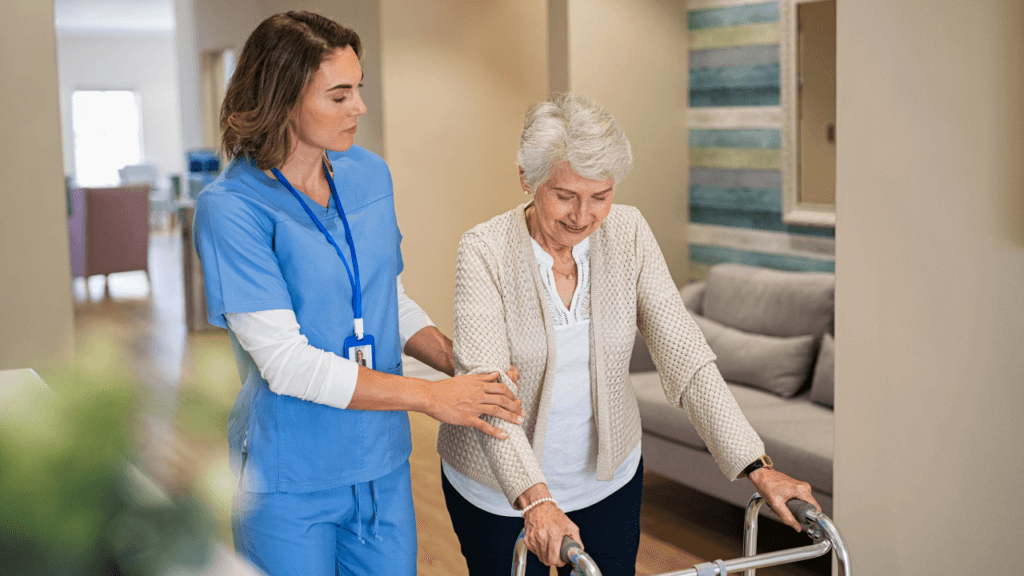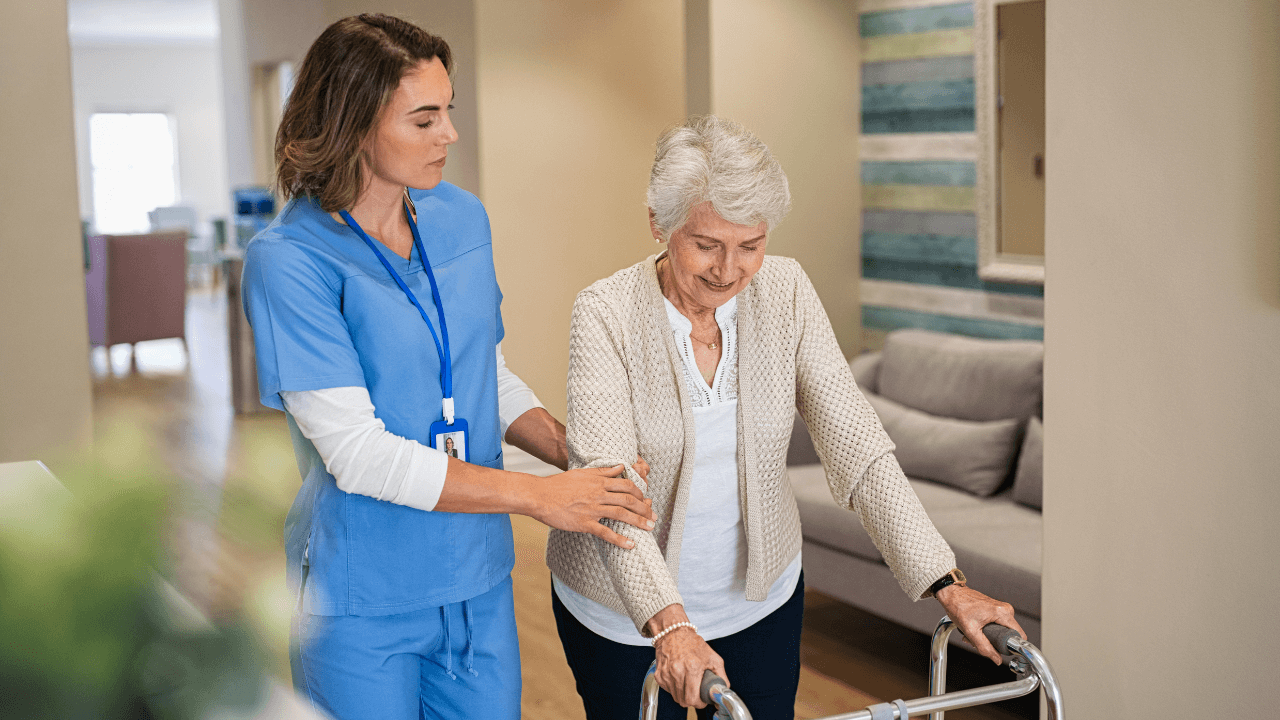
If you have concerns that your family member may be experiencing nursing home abuse in New Jersey, it’s crucial to take action immediately. State and federal laws are designed to protect nursing home residents from neglect and abuse, but families need to be aware of their loved one’s condition and know how to file a complaint if something goes wrong.
At Rosenblum Law, we have experienced attorneys who can help you stop the abuse or neglect and recover damages for any pain, suffering, and medical care your loved one’s treatment has caused or necessitated. Contact us today for a free consultation, and read this article to learn more about how to report nursing home abuse and neglect.
How to Spot Signs of Nursing Home Abuse
Nursing home abuse can take many forms, including physical, emotional, sexual, and financial. It is important to be fully aware of the care that a resident is receiving. Spotting nursing home abuse starts with frequent visits and calls to the nursing home.
Some of the signs of nursing home abuse are the same regardless of the type of abuse being committed. For example, the nursing home staff may not allow you to be alone with the loved one, for fear that they will say something about the abuse. The loved one may also refuse to take medications properly.
Here are other signs of specific forms of abuse.
Physical Abuse
The signs of physical abuse are often more obvious than other types of abuse and include:
- Having unexplained broken bones, sprains, or joint dislocations
- Bruising, scars, or welts
- Signs of restraint, such as marks on the wrists
- Broken eyeglasses or mobility aids
Also pay attention to how staff interact with the resident. If the resident seems fearful of one or more staff members, that can be a sign that they are being physically abused.
Emotional Abuse
The signs of emotional abuse are more subtle. Many elderly people who are being abused develop symptoms that can appear like dementia. They may start sucking their thumb or displaying other childish behaviors. They may take up rocking in their chair or begin mumbling instead of speaking clearly.
Again, one must also pay attention to how staff interact with the resident. In particular, watch for belittling, controlling, or threatening behavior from caregivers. While this might be toned down in the presence of loved ones, the resident’s reactions can tell a lot about how common the behavior is.
Sexual Abuse
It can be easy for a nursing home to hide the signs of sexual abuse, because sexual matters are often not readily visible and are hard for the resident to discuss. If one suspects sexual abuse by a nursing home, there are some potential signs to watch for, including:
- Unexplained STDs, urinary tract infections, or other genital infections
- Bruising near the genitals or around the breasts
- Stained, bloody, or torn underwear
- Vaginal or anal bleeding not related to a medical condition
If someone suspects sexual abuse, it is important to have the resident evaluated by a doctor unaffiliated with the nursing home.
Financial Abuse
Signs of financial abuse are best detected by carefully monitoring the resident’s financial situation and accounts. Look for:
- Changes in their financial situation
- Unexplained withdrawals from bank accounts
- Changes in powers of attorney, life insurance policies, property titles, or wills
- Missing cash from the resident’s room
- Names added to the signature card of the resident’s credit cards
- Unusual purchases of goods or subscriptions
Financial abuse is not as common in nursing homes as it is with other caregivers, but it does happen. For example, staff may have gained the trust of the resident and convinced them to make changes to their financial documents and accounts.
Factors that Lead to Nursing Home Abuse
There are many factors that lead to nursing home abuse. Some of them include:
- Understaffing. Understaffing is a huge problem in New Jersey nursing homes. When there is not enough staff, the remaining caregivers are much more stressed, which can lead to physical and emotional abuse.
- Lack of proper training. CNAs, orderlies, and other nursing home staff must be properly trained to avoid abuse of residents.
- Inadequate resident supervision. Inadequate supervision of caregivers is another factor that contributes to abuse. When more senior staff members are stretched too thin, those below them, such as orderlies, can sometimes abuse residents without being detected.
- Improperly administered medications. When medications are not administered properly, residents are more likely to be vulnerable to abuse.
- Personal issues with caregivers. Burnout, issues at home, poor health, mental illness, or a history of being abused can all contribute to a caregiver abusing residents.
- Lack of meaningful consequences. A lack of meaningful consequences for perpetrating abuse encourages more of it. That is why it is so important to report nursing home abuse to the proper authorities; nursing homes may not punish caregivers for abusing residents in a meaningful way on their own.
The Differences Between Nursing Home Neglect and Abuse
Abuse is that abuse is the intentional mistreatment of a resident, while neglect is the negligent failure to meet the needs of residents. Both neglect and abuse can lead to physical, emotional, and financial distress, and even death.
Nursing home neglect needs to be reported the same as nursing home abuse. Examples of nursing home neglect include:
- Malnutrition, dehydration, and weight loss due to inadequate access to appropriate foods
- Falls due to a lack of supervision or mobility aids
- Sepsis due to untreated medical conditions
- Poor hygiene, such as unchanged adult diapers
- Unsanitary living conditions
- Medication errors, including failing to give medications or giving the wrong medications
- Bedsores due to not being moved enough
- Infections due to unsanitary living conditions or untreated medical conditions
- Untreated and undiagnosed medical conditions
Nursing home neglect often occurs because nursing homes are understaffed, underpaid, and overworked. Lack of training can also be a factor. Nursing homes have a responsibility to provide adequate trained staff to meet the needs of residents, and should be held accountable when they do not.
The best way to see the signs of nursing home neglect is to visit the resident regularly and be aware of the signs above. Nursing home neglect is as dangerous as nursing home abuse, and should be reported in the same way.
How to Report Nursing Home Abuse in New Jersey
To report nursing home abuse in New Jersey, take the following steps.
Call 911 for Immediate Assistance
If a resident has been abused or neglected to the point of needing medical attention, contact 911 to have them taken to the nearest hospital for evaluation. The emergency room can determine the seriousness of the resident’s condition, and the medical evidence present can help substantiate claims of abuse.
Report Doctors to the Board of Medical Examiners
When a doctor is guilty of nursing home abuse or neglect, they can be reported to the New Jersey Board of Medical Examiners. The report can be filed online. The board will investigate all claims of medical malpractice, abuse, or neglect of doctors working in nursing homes.
Report Nursing Staff to the New Jersey Board of Nursing
When a certified nurse is guilty of abusing or neglecting residents in nursing homes, they can be reported to the New Jersey Board of Nursing. Like the Board of Medical Examiners, the Board of Nursing will investigate the claims and can potentially take disciplinary action, including ending the career of the nurse.
Report Abuse to the New Jersey Department of Health
There are many staff working in nursing homes that are not nurses or doctors. Abuse by these individuals can be reported to the New Jersey Department of Health. The facility itself can be reported to the department online. The department will investigate the facility and ensure that they are operating as they should be for the health and safety of residents.
Report Abuse to Adult Protective Services
If the individual is over 18, report the abuse to Adult Protective Services. Reports can be made in the office for the county in which the resident resides or the facility is located. All reports of abuse are investigated by Adult Protective Services, and criminal charges may be pressed in some cases.
Contact the Medicare Ombudsman
The New Jersey Long-Term Care Ombudsman takes reports of abuse and neglect very seriously. The Ombudsman advocates for individuals receiving long-term care. Ombudsman volunteers and staff may take note of complaints and work with the facility to resolve them. In some cases the facility can lose their ability to accept Medicare or Medicaid.
FAQs
Reports of nursing abuse can be filed with the New Jersey Long-Term Care Ombudsman office online or via writing, fax, mail, email, or phone call.
The New Jersey Department of Health is responsible for monitoring and licensing nursing homes in the state.
Yes, legal support can be essential to help you navigate the complicated process of filing a nursing home complaint. Additionally, your attorney can help you determine if you should move forward with a lawsuit.
Call Rosenblum Law for a Free Consultation
Hiring an experienced attorney is important for effectively dealing with nursing home abuse or neglect in New Jersey. You need legal representation to build your case, prove negligence, and seek justice for your loved one. Additionally, an attorney can help you maximize available compensation if a settlement is negotiated. For more information, reach out to our team at Rosenblum Law. We offer full-service solutions to protect your family. Schedule a free consultation at your convenience by calling us at 888-235-9021.







 888-815-3649
888-815-3649
